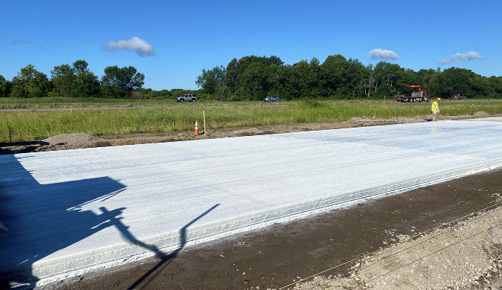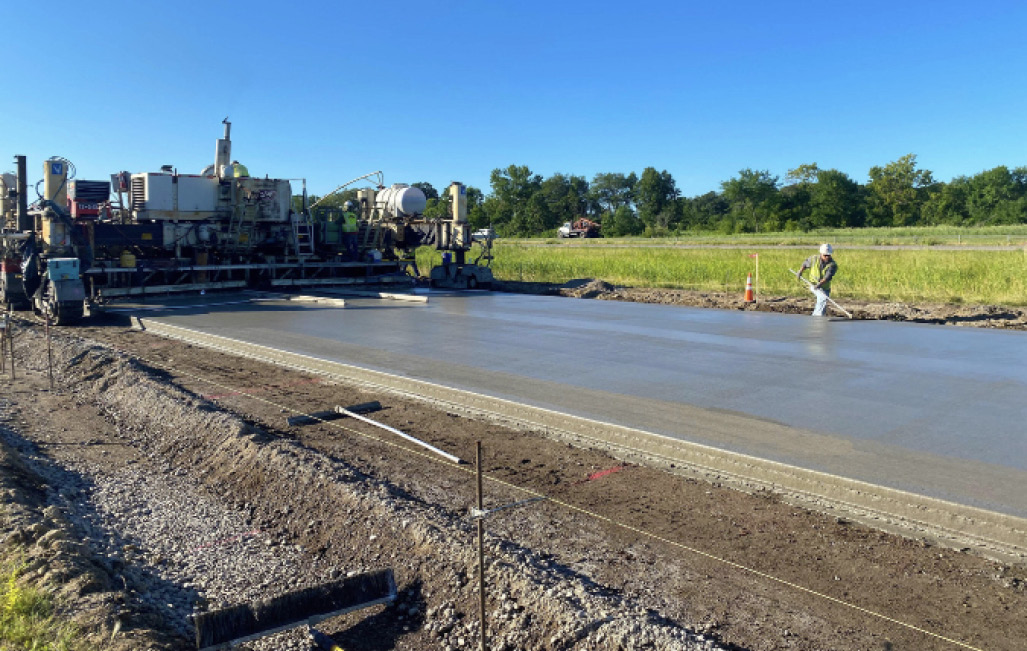Carbon Upcycling Technologies Inc., a Calgary-based developer of complementary cementitious materials and carbon management methods, has completed a three-year study on the use of low-carbon cement in road pavements in collaboration with the Minnesota Department of Transportation and the National Road Research Alliance (NRRA). The study, led by Michigan-based Sutter Engineering LLC and sponsored by NRRA, tested 16 unique concrete mixes in real-world conditions on an active highway in Minnesota to identify options that could reduce the infrastructure's carbon footprint without sacrificing strength or durability to have to.

The study found performance and environmental benefits of Carbon Upcycling's concrete mix compared to an advanced control mix: 28 percent stronger after 28 days and 32 percent stronger after 56 days, coupled with a 12.5 percent reduction in cementitious material, reducing both carbon emissions as well as effectively reducing material costs. Carbon Upcycling notes that the results will impact future low-carbon infrastructure projects across North America, as seamless integration into existing workflows provides a direct, low-carbon alternative without compromising usability or performance.
“Infrastructure is the foundation of a sustainable future, and at Carbon Upcycling we are committed to creating materials that support this vision while building a secure, resilient North American supply chain,” says CEO Apoorv Sinha. “Our collaboration with the Minnesota Department of Transportation shows how carbon upcycling can transform captured emissions into local materials that strengthen our infrastructure. By focusing on resilience and sustainability, we contribute to a vision where our essential structures are clean and built to last.”
“Carbon Upcycling’s material not only achieved the highest reduction in cement content of all entries, but also demonstrated remarkable strength,” adds technical project manager Larry Sutter. “By sequestering carbon dioxide and reducing reliance on Portland cement, Carbon Upcycling’s technology addresses one of the concrete industry’s most pressing challenges – reducing its carbon footprint as global demand for cement is expected to double by 2050. This project data will be invaluable as the industry works towards its 2030 CO2 reduction targets.”
